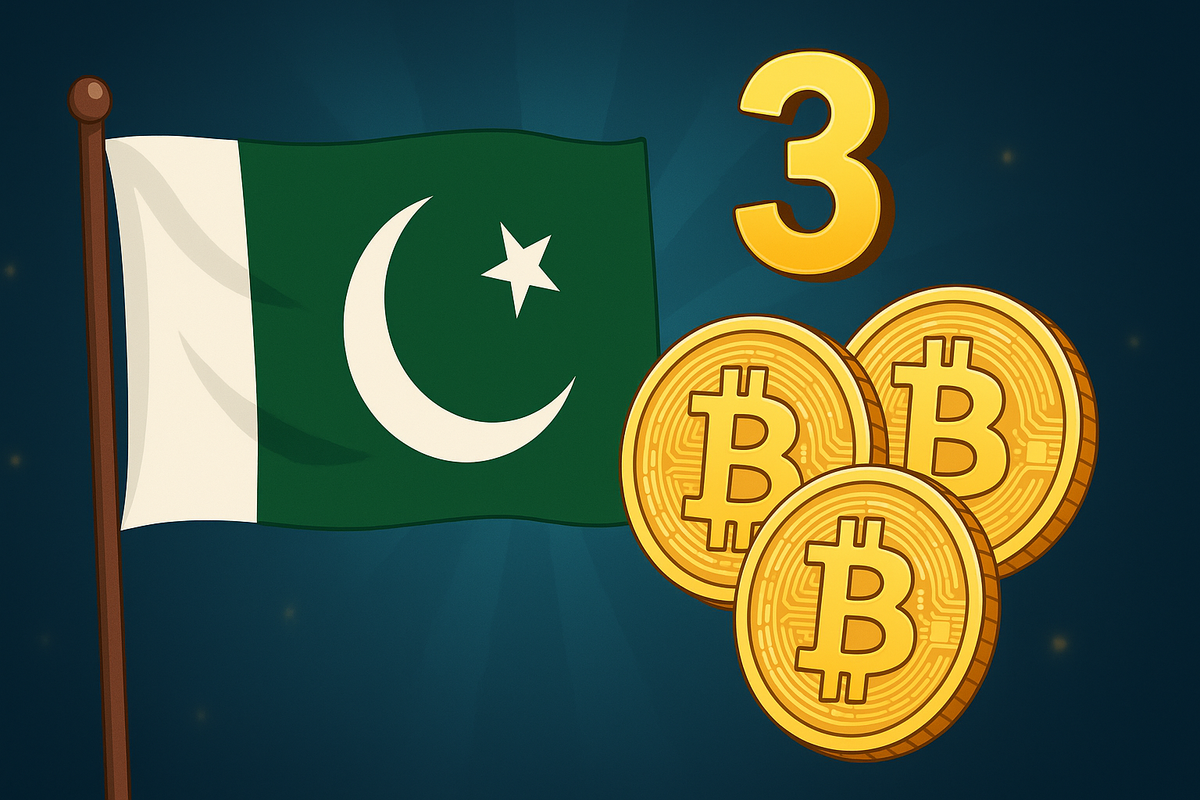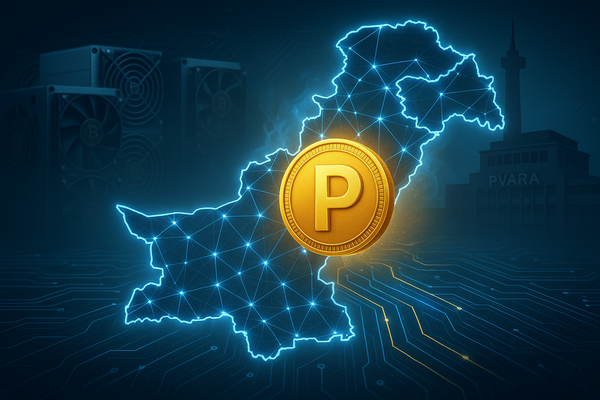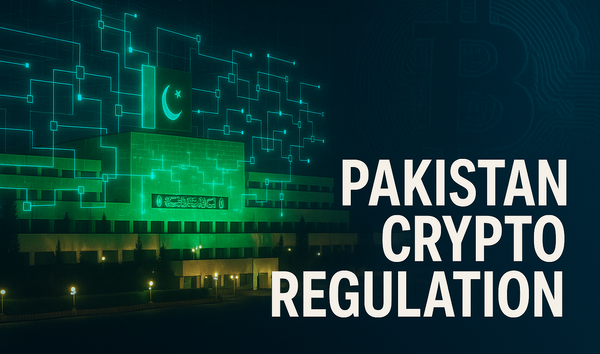Pakistan Ranks 3rd in Global Crypto Adoption: Just Behind India and the U.S
Pakistan has quietly become one of the world’s biggest crypto adopters, ranking third globally. From inflation and remittances to innovation and regulation, here’s how Pakistan became one of the most active crypto markets in the world.

Pakistan has once again made global headlines, ranking third in the world for cryptocurrency adoption, just behind the United States and India. This achievement highlights a growing reality, digital assets have become deeply embedded in the lives of millions of Pakistanis who see crypto not only as an investment but also as a lifeline in an uncertain economy.
While the global crypto market continues to evolve, Pakistan’s position shows how rapidly emerging economies are embracing financial innovation. But this growth also raises questions about regulation, risks, and what the country should do next.
Understanding the Ranking
When analysts rank crypto adoption, they don’t simply look at how much Bitcoin is being traded. They evaluate a combination of factors such as on-chain activity, peer-to-peer transactions, and the proportion of a country’s population using digital assets. Pakistan’s ranking reflects strong participation from ordinary citizens rather than just institutional investors.
This means that crypto in Pakistan is not limited to traders or tech enthusiasts. It has become a tool for saving, sending money, and preserving value during times of financial instability.
Why Pakistan Leads in Adoption
1. Economic Pressures
The declining value of the Pakistani rupee and ongoing inflation have encouraged people to seek alternatives for protecting their savings. Many see Bitcoin and stablecoins as a digital hedge against the weakening currency.
2. Remittance and Cross-Border Payments
Pakistan is one of the largest remittance-receiving countries in the world. Millions of overseas workers send money home every month. Traditional remittance systems can be slow and expensive, while crypto offers faster and cheaper transfers. This has naturally led to high usage among everyday families.
3. A Young, Tech-Savvy Population
With a large youth demographic and increasing internet penetration, Pakistan has one of the fastest-growing digital economies in South Asia. Young people are experimenting with new financial tools, building small trading groups, and learning about decentralized finance (DeFi) and blockchain through social media.
4. Limited Banking Access
A significant portion of the population remains unbanked or underbanked. Crypto has become an accessible gateway for those who lack traditional banking services, allowing them to transact, save, and invest using only a smartphone.
5. Informal but Expanding Ecosystem
Despite the absence of formal regulations, a thriving network of exchanges, freelancers, educators, and small businesses continues to grow. Local platforms, online courses, and P2P groups have helped more people understand and use digital assets safely.
Strengths and Weaknesses
Pakistan’s crypto scene has strong momentum, but it still faces several challenges.
Strengths
- Strong grassroots and retail participation
- High volume of peer-to-peer transactions
- Growing awareness among freelancers and small businesses
- Utility-driven usage rather than pure speculation
Weaknesses
- Limited presence in DeFi and tokenization markets
- Lack of regulatory clarity and investor protection
- High exposure to scams, volatility, and misinformation
- Difficult on-ramps and off-ramps between fiat and crypto
The current environment has allowed innovation to flourish but without proper oversight, users remain vulnerable to losses and fraud.
The Opportunity Ahead
Pakistan’s high adoption rate is a double-edged sword. It shows enormous potential but also highlights the urgency of building the right infrastructure.
1. Financial Inclusion
Crypto can bring financial access to millions who are excluded from the traditional banking system. With smartphones and stable internet, anyone can store or transfer value instantly.
2. Innovation and Startups
There is a clear opportunity for local blockchain startups to create platforms that cater to the unique needs of Pakistan’s economy, from digital remittances to micro-lending and real-world asset tokenization.
3. Job Creation and Skill Development
As global Web3 projects expand, Pakistan can position itself as a hub for blockchain developers, community managers, and fintech innovators. The demand for crypto-related skills is already growing rapidly.
4. Government Revenue Potential
If Pakistan develops a clear and fair regulatory framework, the government could generate revenue through taxation and licensing while promoting a safer crypto environment.
The Roadblocks
While the potential is huge, the path forward will not be easy.
Regulatory Uncertainty
Pakistan’s regulators have yet to introduce a comprehensive framework for crypto assets. This has caused confusion among banks, investors, and startups that want to operate legally.
Security and Education
Many users still lack basic knowledge about crypto security, which makes them vulnerable to scams and fake investment schemes. A national awareness campaign could help reduce these risks.
Infrastructure Limitations
Converting crypto to fiat remains complicated, as most local banks avoid direct engagement with digital assets. Licensed exchanges and approved payment gateways could solve this problem.
The government’s recent openness to blockchain innovation shows that change is coming. There is growing discussion around setting up digital asset frameworks, sandboxes for startups, and even using blockchain for governance and transparency.
Pakistan’s next step should be to strike the right balance between innovation and regulation. With a thoughtful approach, the country can transform its massive adoption into a formal, thriving industry that supports growth, inclusion, and global competitiveness.
Pakistan’s rise to the top three in global crypto adoption reflects a remarkable story of resilience and innovation. It shows how technology can empower people even when traditional systems fall short.
However, to move from informal growth to sustainable development, Pakistan must now focus on education, regulation, and security. If done right, the country can evolve from being just a major user of crypto to becoming a genuine leader in blockchain innovation across Asia.




